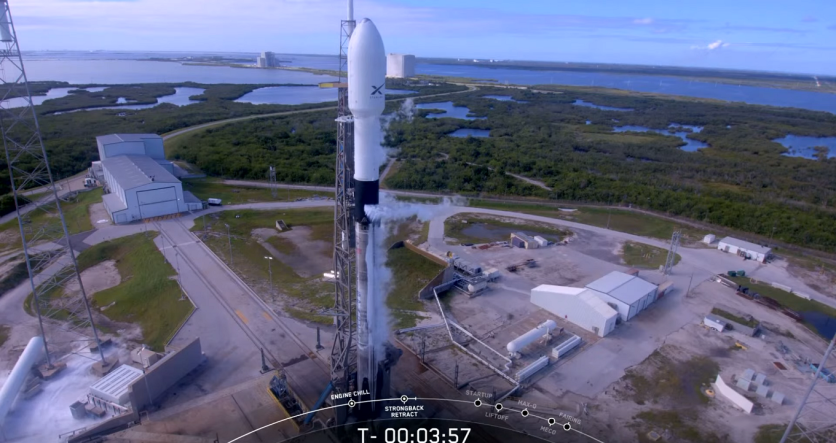SpaceX has launched 60 more Starlink satellites for its mega constellation on Monday, Nov. 11, from Cape Canaveral Air Force Station located in Florida, following the first 60 satellites that launched first in May.
SpaceX Starlink Satellites Launch
SpaceX engineer Lauren Lyons said in a webcast that they have deployed more satellites and that the company founded by Elon Musk is one step closer to providing faster and more reliable internet to the whole world.

Monday's launch was also the fourth mission of the SpaceX Falcon 9 rocket booster, breaking the record and making it the first time a company has reused a booster.
The Falcon 9 booster was first used in July 2018, October 2018, and February 2019 for previous satellite launches, and has landed successfully during each mission to be reused once more.
Lyons even said that they would be using it for the fifth time.
Bright in the Sky
The May launch of the SpaceX Starlink satellites surprised many with its bright visibility in the sky; however, this Monday's launch didn't do so well, especially for Northwest Europe and even in the USA, according to Marco Langbroek, a Netherlands-based satellite tracker who spoke to Space.com.
But, it is still possible to see the new satellites in the sky since they have a relatively low orbital altitude of 350km, compared to the first 60 that were as high up as 440kms, where they will stay for a while to be tested if they work before reaching their final destination way higher than the initial one.
That said, they are still bright and big enough to be seen by the naked eye, according to Langbroek.
Faster Internet Connectivity Soon
Based on a report by Time, SpaceX will continue with their schedule of sending more Starlink satellites by batches and hoping to start providing their services to the northern USA as well as Canada by next year.
The SpaceX constellation will include 42,000 satellites by the time the project is done.
Ruining the Night Sky?
Due to the massive number of satellites and their incredible brightness, some astronomers are worried about the Starlink constellation's effect on astronomy observation, saying that the satellites will block the view of the sky and it will be harder for them to observe the stars and heavenly bodies.
However, SpaceX CEO Elon Musk has reassured these worried astronomers that there is nothing to worry about, and the satellites will not ruin the night sky, especially once they have settled in their final destination up in space.
ⓒ 2025 TECHTIMES.com All rights reserved. Do not reproduce without permission.




